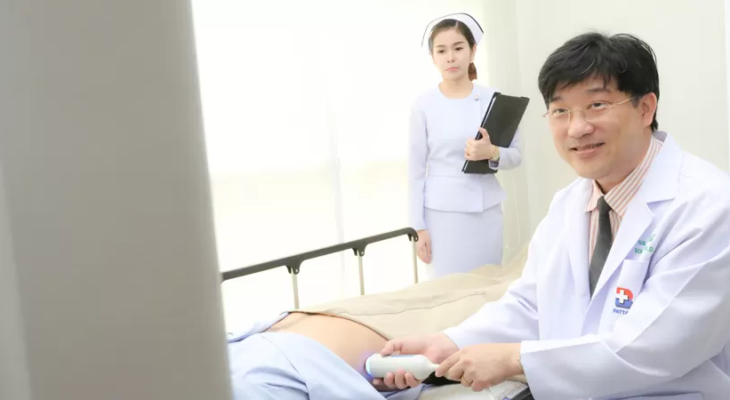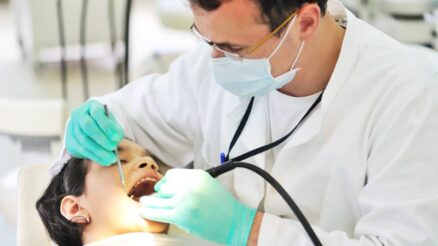The vast majority of children grow strong and healthy and experience nothing worse than common childhood ailments. Most children will experience bouts of influenza, strep throat, and otitis media at some point during their formative years. Additionally, chicken pox, measles and conjunctivitis are commonplace in childhood.
These health issues are treated as a matter of course, and children go through these trials with little or no negative consequences. It is also comforting to know that the numbers of children contracting the better-known diseases is, year on year, falling. This is due to vaccines such as the MMR and varicella.
However, there are many health issues that our children cannot be vaccinated against, gastrointestinal and liver complaints being two of the most common. Sadly, the numbers of children suffering with health issues of this type are trending upwards. Indeed, figures suggest that up to 47% of children suffer from some form of gastrointestinal health issue, of course most of these are very minor and can be looked upon as being just part of growing up.
Other such conditions are not so minor and require the intervention of modern medical diagnostics and treatment. Gastrointestinal and liver complaints are many and varied, thus require the skills of highly trained medical professionals in order to alleviate the suffering. And there are no better professionals in which to trust the care of child than those at Samitivej Hospital’s Pediatric Gastrointestinal and Liver Center in Bangkok.
Typical Gastrointestinal and Liver Health Issues
Gastroesophageal reflux disease, or GERD, and often referred to as heartburn, is normally associated with adults, but there are increasing numbers of children suffering with this condition. Regardless of its severity, the condition is normally containable and curable.
Lactose intolerance is another condition that is affecting more and more children today. This condition is where the body is unable to effectively breakdown lactose. Lactose refers to the sugars that are found in dairy based foods. Typical symptoms are gaseous bloating and watery or loose stools.
Approximately 1 in 300 children suffer with celiac disease, these numbers are greater than those for adult sufferance. Following the consumption of food and drink containing gluten, the disease causes the body to attack the lining of the small intestine. Symptoms can range from constipation to diarrhea, vomiting and stomachaches. Indicators show that this condition can be hereditary.
Irritable bowel syndrome affects between 10 and 15 percent of children worldwide. The condition is often known by its numerous alternative monikers. Common alternative names for the condition include Inflammatory bowel disease or IBD, colitis, colitis, spastic bowel, and spastic colon. The condition leaves the sufferer with intense, and persistent, stomachaches and diarrhea.
Constipation is a common condition all children will experience at some point during their development, and there are a multitude of causes. Diet is usually the cause in most cases of constipation, medication is also a common cause. However, any child with persistent constipation without any apparent reason, a professional consultation should be sought.
Most people associate gallstones with adults, however, 2% of gallstone sufferance is experienced by children, although the cause is different. In adults, gallstones are associated with cholesterol, and although the symptoms are very similar, in children the causes are very different.
Blood diseases such as thalassemia may be the cause, as may be an abnormality in the child’s biliary tract. Often hereditary, obesity can be the cause of gallstones, they can also appear following other surgical procedures or from prescribed medicines or nutrients. Whatever the cause, the condition is usually curable with professional medical assistance.
Facilities, Diagnostics and Treatment
At the Pediatric Gastrointestinal and Liver Center in Bangkok every parent can be assured of care at the highest level. State-of-the-art equipment and treatment rooms, combined with a team of internationally trained physicians, who are backed up by equally well-trained support staff, come together to deliver an unequalled level of diagnostics and treatment for young people.
One of the simplest diagnostic procedures entails nothing more than a breath test. Breath testing can aid the doctors in assessing any improper function within the digestive system, as well as detecting bacteria in the small intestine and stomach.
X-rays are an invaluable tool within the medical profession and are an excellent aid in diagnosing gastrointestinal and liver complaints in children. Barium studies are common and employ the use of X-rays. This procedure allows the physicians to study and evaluate the transit time through the digestive tract.
Other diagnostics include pH monitoring and impedance via an esophageal acidity test and gastrointestinal endoscopy monitoring. Imbibed video capsule endoscopy can be used to give doctors a real time view of the digestive tract.
Fibroscans aid the physicians in quantifying the level of fatty deposits on the liver. Anal manometry tests allow the assessment of anal muscle function, CT and MRI scans help to diagnose many gastrointestinal and live health issues. Lactose and food allergy testing is also routinely undertaken at the clinic.
Conducted by skilled professionals, these diagnostics techniques allow the doctors to produce appropriate and specific treatment programs for each and every patient. Additionally, communicating the specifics of a patient’s condition is considered to be as important as diagnosis and treatment.
Detailed explanations of each patient’s condition, and its individual peculiarities, are vital in improving self-awareness. Advice and, where appropriate, instruction are key factors in managing gastrointestinal and live health issues. The trained staff at the center can give nutrition and dietary advice, as well as training for patients with swallowing difficulties. Additionally, toilet training may be required for some children.
As with all of Samitivej Hospital’s facilities, the Pediatric Gastrointestinal and Liver Center in Bangkok adheres to the “Real Clean Means” program of hygiene and sterilization. This unique systematic routine has raised the bar in hygiene and cleanliness for medical facilities.
Such impeccable standards go hand-in-hand with the exemplary medical care and treatment, delivered by renown specialists, administered by what is one of the world’s leading medical facilities in the area of pediatric gastrointestinal and liver health issues. The center is now responsible for having improved the lives of children, not only local and Indigenous, but from all over the world.





